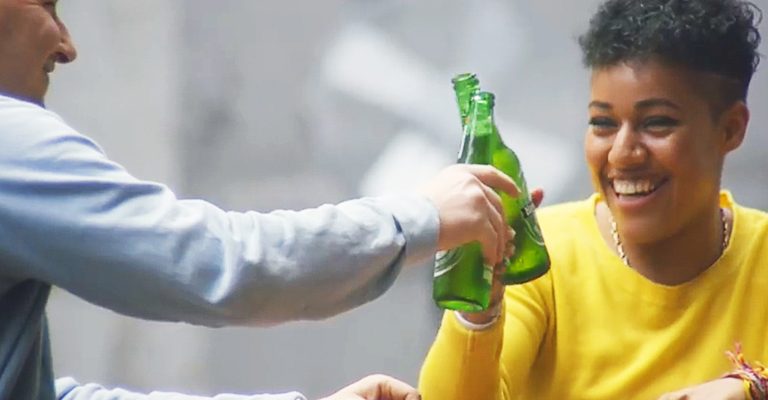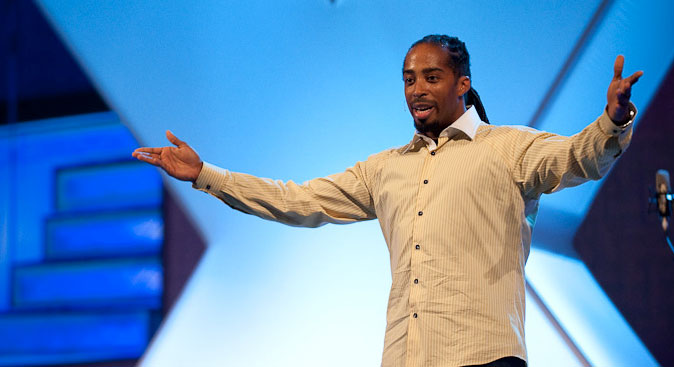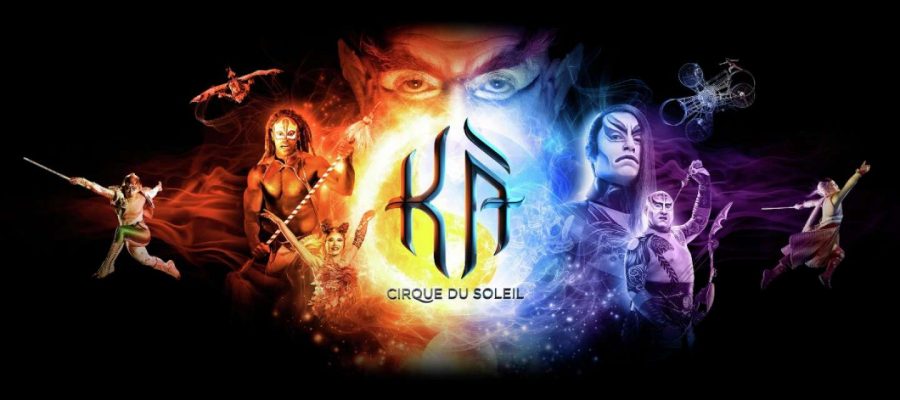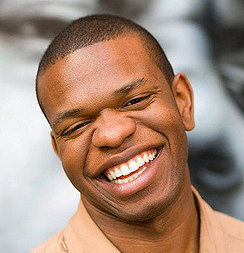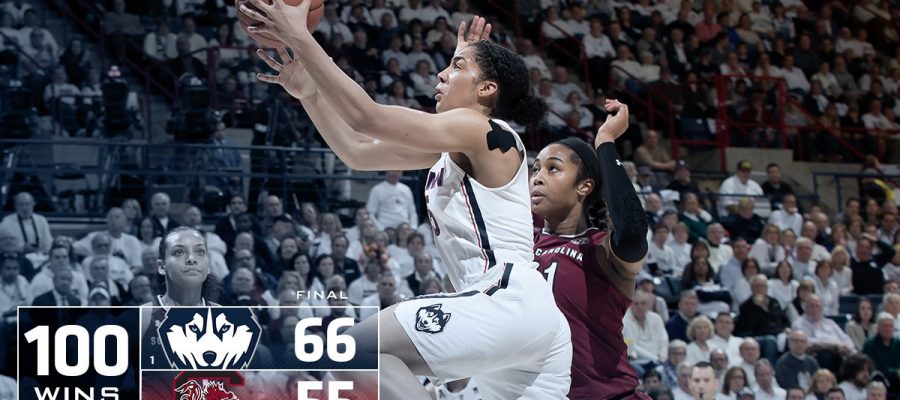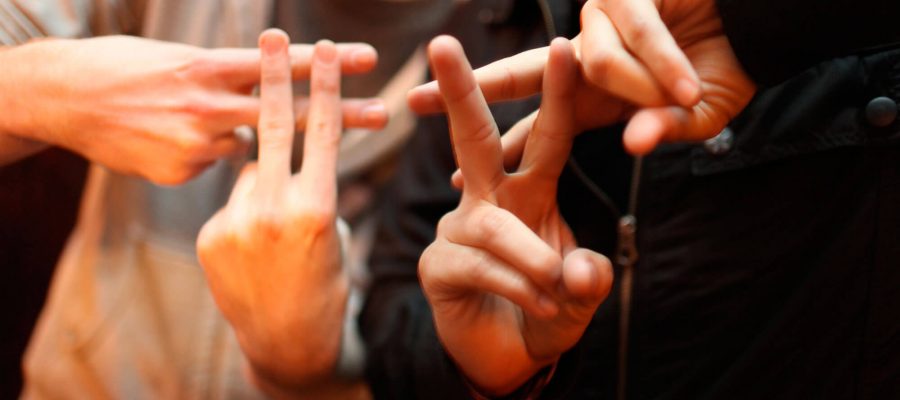Heineken recently invited us to open our world. If you haven’t seen it already, take time to watch! It will be the best 4 minutes of your day! This is what the Year of the Peer is all about!
Category: inspiration
Sekou Andrews – Making the Whole Greater Than the Sum Of Our Smarts!
Podcast: Play in new window | Download (36.0MB)
Subscribe: Apple Podcasts | Spotify | iHeartRadio | TuneIn | RSS | More
Sekou Andrews is an elementary schoolteacher turned actor, musician, national poetry slam champion, entrepreneur, and now the world’s leading Poetic Voice. On any given day, Sekou may deliver an original talk for international marketing executives, give a keynote speech at a leadership conference, or perform pieces for Barack Obama in Oprah’s backyard. His work has been featured on such diverse national media outlets as ABC World News, MSNBC, HBO, Good Morning America, Showtime, MTV and BET. Sekou does more than inspire us with his story; he inspires us with our story. You can learn more about Sekou at http://sekouandrews.com and http://rockstarspeakersecrets.com.
Next week’s guest is Paul Michelman, Editor-in-Chief, MIT Sloan Management Review.
Serving Life
The title of this post was taken from a powerful 2011 documentary narrated by Forest Whitaker about a group of inmate volunteers who staff their own hospice inside a maximum security prison in Louisiana, where the average sentence is more than 90 years. I became aware of the documentary after spending three days at a residency for prison wardens in Baton Rouge in the Spring of 2016 at the behest of Vistage Worldwide (where I worked at the time), which was exploring the prospect of including prison wardens in Vistage groups.
Here’s how the Warden Exchange eloquently and accurately portrays its mission: The Warden Exchange™ (WE) is a Prison Fellowship program empowering corrections professionals to create a legacy of safer prisons and safer communities. The Warden Exchange convenes thought leaders who exchange innovative ideas and best practices for the moral rehabilitation of inmates. Together, we can create a prison culture conducive to restorative change and successful reentry.
Essentially, wardens from all over the country come together for in-person residencies and online sessions throughout the year to learn from one another. It’s a remarkable collection of leaders who have an unspeakably difficult job. I was privileged to get to know them and blown away by a group visit to Angola – the maximum security prison that was the subject of the documentary. During my three days at the residency, I witnessed the power of peers in its full splendor – wardens learning from one another, the tireless efforts and teamwork of the Angola staff, and prisoners serving life sentences resolved to making their “community” better.
I didn’t know what to expect when I attended the residency last year, but I am grateful for having had the experience and for staying in touch with National Director for the Warden Exchange, Pedro Moreno. As a result, I led a workshop for about 40 wardens in Houston earlier today, and the group was amazing. (I also had the pleasure of talking to Burl Cain, the person who transformed Angola from the bloodiest prison in the U.S. to what it’s become today). I wish everyone could see these incredible leaders, up close and personal, to appreciate the work they do to make our society better. Best of all, they are doing it together, serving life one peer at a time!
(By the way, if you’ve never seen Serving Life, buckle up and check it out!)
Is good the enemy of great? Or is perfection the enemy of good?
A number of years ago, I saw Cirque du Soleil perform Ka` at the MGM Grand. I didn’t know a great deal about the show until reading about it after the performance. The LA Times review confirmed my belief that it “may be the most lavish production in the history of western theater.” I thought, “Yup. That’s sounds about right to me!” I’ll never forget it. I reflected on how this amazing ensemble comes to work and performs this show twice a day, five days a week – knowing full well that for 95+% percent of the people in the audience, it will be the only Ka` experience they will ever have. They have to “bring it” to each and every performance! No show ever gets “phoned in.” Together, performers and crew members alike are committed to WOWing every audience that walks through the doors of the $220 million theater specially created for this show.
In my post, Peer Group Accountability: Who’s Responsible?, I essentially mentioned that it starts with each of us holding ourselves to high standards and modeling that behavior to inspire and motivate others. In researching and writing about peer advisory groups, I’ve talked to countless members and group leaders who extol the virtues of their culture of group accountability – saying by comparison, that individuals, left to their own devices, primarily dare to be average. I’m sure you’re bristling at the mere suggestion, but ask yourself if you’re doing everything you can do to be at the top of your game each and every day. Do you go to work with the same commitment to excellence as the team at Cirque du Soleil? If you do, you’re a rare bird.
Contrast Jim Collins’ explanation of “good being the enemy of great” (where good is too often good enough), with the concept of perfectionism and the familiar quote from Voltaire, translated literally as “The best is the enemy of good” or more commonly expressed as ‘”The perfect is the enemy of the good.” The quote references the paralyzing effect of the pursuit of perfection. It’s where the hope to implement the perfect solution can result in no solution at all. So is good the enemy of great? Or is the pursuit of perfection the enemy of good? Seems to me, they are two sides of the same coin. Neither is an excuse for mediocrity.
Understanding these dynamics is just one of many ways being part of the right peer group or high performing team will help you discern the difference and inspire you to achieve more than what you could ever do alone. What’s more, it will help you bring a little Ka`into your own life.
“And the Oscar Goes To”…The Year of the Peer
The prevailing sentiment of the Year of the Peer was evident in its full splendor at the 2017 Academy Awards, as host Jimmy Kimmel opened the show with a monologue, that in part, called for greater civility in our dialogue. I also loved how the attendees celebrated peers who inspired their careers, as well as the way they applauded each others’ work with what I believed to be a heightened spirit of enthusiasm. In this Year of the Peer, Hollywood was pitch perfect.
Several of the advertisers followed suit in impressive fashion by sharing messages about the power of love and understanding to the millions of people around the world following the live broadcast. Here are two of the spots below. Enjoy and let’s be sure to carry this forward in our own lives in the months and years ahead.
It’s a fitting time to remember the words of Jodie Foster‘s character, Ellie Arroway, in the movie Contact, “I’ve always believed that the world is what we make of it.” That it is.
Rahfeal Gordon: “Your location is not your destination.”
Podcast: Play in new window | Download (Duration: 34:57 — 32.1MB)
Subscribe: Apple Podcasts | Spotify | iHeartRadio | TuneIn | RSS | More
Rahfeal is a life strategist, leadership specialist, and innovator of inspiration. For more than a decade, Rahfeal has been leveraging the core fundamentals that promote productivity while guiding entrepreneurs and global leaders to success. He provides great insight into the environmental and physical circumstances that impact an individual’s personal and business performance. Rahfeal knows how to create positive work environments that enhance an individual and team’s performance.
Next week’s guests will be social learning pioneers, Etienne & Beverly Wenger-Trayner.

100 Consecutive Wins – Life in Stage 5!
Moments ago, the #1 ranked University of Connecticut women’s basketball team defeated #6 South Carolina 66-55 for its 100th consecutive victory. To put this perspective, the team hasn’t lost a game since November 17, 2014. Last year, their big three, seniors Breanna Stewart, Moriah Jefferson, and Morgan Tuck were drafted by the WNBA, number 1, 2 and 3 respectively. After losing the players who led the Huskies to four consecutive national championships, this would have been a rebuilding year for any other sports program in America – except for UConn. They’re already 25-0 this season, beating nationally ranked opponents Notre Dame, Baylor, Maryland, Florida State, Ohio State, and now South Carolina, with no one left of the regular season schedule likely to give them a serious challenge until the NCAA tournament.
Why should organizations outside of sports be marveling at the streak and paying close attention to this program? Let me offer this:
Several years ago, I heard Dave Logan deliver a terrific presentation based on a book he coauthored called Tribal Leadership. Among other things, he talked about the five stages of culture. Here are the five stages as I recall them:
Stage 1 – “Life sucks.” Roughly 2% of companies have cultures that represent something akin to a prison gang. (Scary but, true).
Stage 2 – “My life sucks.” The implication here is that people are likely to believe that your life may be okay, but my life sucks. (25%) of companies have cultures where people pretty much show up and do just enough to avoid getting fired. They can’t wait until 5:00 PM – especially on a Friday.
Stage 3 – “I’m great.” (with an implied, “and you’re not.”) This culture is characterized by an egotistical, command and control style leader who creates dyad relationships with the employees. (49% of organizational cultures fit this description, by the way).
Stage 4 – “We’re great.” 22% of organizations enjoy a team culture that wants to be the best as defined by their competition. They’re all about being #1 among everyone else in their space.
Stage 5 – “Life is great.” This is the organizational culture that sets its own standard of excellence. Think Secretariat at the Belmont. Logan noted that roughly 2% of organizations experience this rarefied air, but no one lives there for very long. They typically toggle between stages 4 and 5.
Dave Logan, meet the University of Connecticut women’s basketball program.
UConn players, and the coaching staff who created this culture over the past 30 years, compare themselves to the great UConn teams of the past, not to the teams on their upcoming schedule. They set their own standard of excellence each and every day at practice and with every possession – offensively and defensively – in every game. Rather than pay attention to the scoreboard, they honor the work ethic of UConn’s former players and are committed to making the dream of winning a national championship possible for their teammates. Their accountability culture and support for one another is off the charts. They will lose a game someday, but as long as they maintain their culture, it won’t happen very often.
This is what living in stage five looks like. Close your eyes and imagine your organization playing at UConn’s level. Now open them. Life is great! (Or it could be, if you take the power of their example seriously).
Congratulations to UConn for winning 100 consecutive games and for setting a standard of excellence for all of us to follow.
Who Are Your Peeroes?
Like many people here in the U.S. and around the world who watched yesterday’s Super Bowl, I was blown away by New England’s comeback victory. Down 28-3 in the second half (28-16 with only 6-minutes left to play), the Patriots scored the next 31 points for a 34-28 overtime win. While the accolades being thrown at Tom Brady are well deserved, make no mistake, it was a team effort. Just look at all the players on offense and defense who made big plays down the stretch.
Despite the odds, the team continued to believe in each other. And without that collective belief, a comeback would have been impossible. Who you surround yourself with matters for sure. Now having grown up in the Boston area, I was most certainly rooting for the Pats, but I also know what experiencing a tough loss as a fan is all about. So I appreciate the class with which the Atlanta Falcons team handled such a devastating setback. It says just as much about their organization as it does New England’s.
I hope the players on both teams see each other as “peeroes” in the same way Teresa Eyet described the people in her life in a 2016 blog post. In her post, she wrote:
Over and over throughout my life, I heard the recommendation to surround yourself with people who challenge you, who lift you up, who are living the life you want to lead, and are making changes in the world you want to see. It wasn’t until recently that I realized I needed to pay some real attention to who I was spending my time with. I guess I was ready to finally see/feel how different I felt when I was around people with grateful hearts, with vision, and those who approached life with their glasses half full. These are people who build up my energy and my confidence, and I refer to them as my “Peeroes.”
I invite you to read about her peeroes. Then, reflect on the people in your life. I believe that if you enlist their support, they can help you accomplish anything and pretty much survive everything. I hope the Patriots, the Falcons, and all of us for that matter, recognize the special people we surround ourselves with for the super-peeroes they are. None of us does it alone. Not even Tom Brady.
The Case For Adopting #yearofthepeer in 2017
In 2017, I’m convinced that, together, we will inspire a positive change in the way we engage one another in business and in life. If you contribute to the Year of the Peer in just one small way, you’ll see how effective the power of peers, the power of “us”, can truly be.
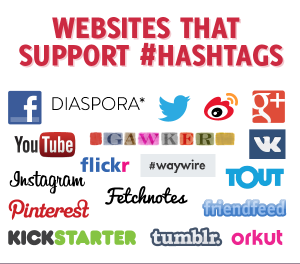
The good news is that contributing is easy: 1) Be on the lookout for positive stories and examples of the amazing peer-to-peer interactions that are happening all around us each and every day – in our schools, businesses, communities, social media, peer advisory groups, etc. They are not getting the attention they deserve, so let’s shine a brighter light on them. 2) Take the lessons from those examples and bring them into your own life and to those closest to you. 3) When you encounter something worth telling the world about, or you have a story of your own that could inspire someone else, see to it that it’s captured for all of us on your favorite social media platform using (hashtag) #yearofthepeer.
As I write this, the voice of Ryan Foland is ringing in my head, asking me to answer the question, “What problem are we trying to solve for?” It’s a fair question, and I hope my response creates a sense of urgency as to why it matters so much, especially now.
What problem are we trying to solve for?
We’re coming off the most divisive presidential election in modern U.S. history. As a society, we’ve come to debate more than dialogue, talk more than listen, and judge rather than learn. Trust in our institutions is low and the political climate for compromise has never been more toxic. It’s classic boiling frog syndrome. It’s become a big problem and we’re paying a high price.
Consider this sobering example, the 1948 “Do Nothing (80th) Congress,” as labeled by Harry Truman, passed more public laws (906) than the 112th, 113th and current 114th Congress combined (as of October 2016). Apparently, it’s become more acceptable for our respective representatives to be intractable and come home empty-handed, than to accomplish something that would actually benefit the American people.
That said, blaming our political leaders is not a solution, nor is it entirely their fault. It’s bigger than that. Collaboration and compromise breed casualties across all sectors – winners and losers, leaders who “caved to the other side.” As long as everything remains a zero-sum game and those who collaborate to reach sensible compromise continue to be marginalized by the media (and the public, by the way), we’ll all be the biggest loser.
Neither collaboration nor compromise are four-letter words. This is where CEOs have an opportunity to lead by example. Consider that in 2013, a study conducted at Stanford Graduate School of Business concluded that nearly two-thirds of CEOs don’t receive outside leadership advice. Seeking the help and assistance of others is a sign of strength, not weakness, no matter what position you hold in an organization.
Together, we have the power to send a message to every sector of our society that it’s time for a change, because somehow, somewhere along the line, we stopped listening to what our elementary school teachers taught us all those years ago: We’re simply not working and playing well with others nearly as well as we could. This is the problem we’re trying to solve for, and if we don’t start now, it’s only going to get worse to our detriment.
A Positive Example of What’s Possible
The biggest lesson I’ve learned from two decades of watching the University of Connecticut women’s basketball team and studying their program (4 consecutive national championships and currently riding an 84-game winning streak) is that being a good teammate is more important than the individual stats or accomplishments of any one player. That’s why in 2015, Nate Silver dubbed it the most dominant basketball program on the planet. We need to borrow a page from UConn’s playbook. What if all of us just committed ourselves to being better teammates?
What’s Next…
In addition to speaking and writing, let me talk about another small contribution to the larger cause. For 50 weeks during 2017, I’ll bring some of the best minds in the world together to share their insights, stories, and recommendations about how we can work together more effectively – how to seek common ground and see one another for our gifts rather than our differences. Guests appearing on my podcast: Year of the Peer with Leo Bottary during Q1 will include Altimeter Group CEO, Charlene Li; Forbes publisher and global futurist, Rich Karlgaard; Founder and Executive Director of the Business Owners Council, Lewis Schiff; Host of MSNBC’s Your Business, JJ Ramberg; Inspirational speaker, Rahfeal Gordon; global start-up evangelist, Vitaly Golomb; and best-selling coauthor of more than 30 leadership books, including The Leadership Challenge, Jim Kouzes, among others.
My hope is that you’ll subscribe to the free podcast and invite your friends and colleagues to do so as well. Of course the podcast is just one small part of a larger movement. If you see this opportunity before us in 2017 as I do, I also invite you to read these two blog posts to get you ready for the Year of the Peer and, in turn, for you to share your ideas and stories with all of us during the coming 12 months.
http://leobottary.com/2016/11/26/10-11-ways-to-prepare-for-the-year-of-the-peer/
http://leobottary.com/2016/12/06/12-must-reads-for-the-year-of-the-peer/
This fast changing, complex world is going to ask more of us than ever before. We’ll have to rely on one another to meet the challenges of a future most of us can barely imagine. Going it alone isn’t going to cut it. Who you surround yourself with matters. Remember to use (hashtag) #yearofthepeer, share this post with your friends and colleagues, and join us on January 12th for our first podcast with guest Charlene Li! Thanks for reading!
10 (11) Ways to Prepare for the Year of the Peer
I am sitting in my family room watching the Ohio State/Michigan game, laptop in lap, posting on the topic of preparing for the Year of the Peer. A few moments ago, I received a text from a friend I met since moving to California about eight years ago. The message read: Just wanted to say that post Thanksgiving, I have a real sense of gratitude for all the family, friends, and acquaintances in my life. Hope I’ve been good to you, too!
Hard to think of a better way to prepare for the Year of the Peer than thanking the people you care about, sharing how much you appreciate them, and letting them know you hope you’re making a positive difference in their lives as well. It’s something we don’t do often enough, yet being the recipient of such a message has already made my day and inspired me to complete this blog post (game notwithstanding).
After thanking the people who are making a difference in your life, here are 10 other suggestions:
- Commit yourself to the idea that who you surround yourself with matters. Recognize that so much of who you are and what you achieve in life is a reflection of your peers.
- Take stock of the people in your life. Who is lifting you up, holding you at bay, or even dragging you down? Spend more time with the people who will help you raise your game.
- Ask yourself: Who did I meet this year (whom I didn’t know last year) who has made a positive difference in my life? Consider how you can advance those relationships to your mutual benefit. (And if you don’t have anyone new in your life, take note of that for next year).
- Ask yourself: Who have I lost touch with over the years? How and why did that happen? Not every relationship in our life is meant to last forever. However, often times we can lose touch with someone without even realizing it. Before we know it, x years have gone by and we just never realized it. Don’t let that discourage you from reaching out! You’ll both be glad you did.
- Seek out individuals who will challenge your world view. Too often, we hang out with people who are similar to us – for some of us, maybe too similar. In the movie The Sure Thing, Professor Taub tells her students: “Have conversations with people whose clothes are not color coordinated.” Good advice!
- Assume a posture of learning rather than judging. The more often you can take the default position that you can learn from anyone if you just pay enough attention, the more likely you actually will. Don’t judge others, or rate their opinions/answers to your questions, learn from them.
- Ask more questions of people and listen for understanding. This is tough to do if you’re inclined to judge all the time, which is why being a learner is so essential. Too often when people make statements we don’t agree with, we counter with our own diametrically opposed viewpoint. While you can’t fathom how someone could hold such a view, you’ll never find out either if you leap into an argument. Be curious instead. If you do, you may never achieve agreement, but you might come to a mutual understanding and even develop a respect for a different point of view.
- Share what you do know with others who will benefit from your experience and wisdom. Effective peer-to-peer relationships are powered by generosity and reciprocity. As you learn from others, be sure you are returning the favor.
- Avoid the urge to make a New Year’s Resolution. If anyone asks you, just say you’re not doing that this year. According to the University of Scranton, while nearly half of Americans make New Year’s Resolutions, 92% of them fail. People fail largely because their resolution lacks specificity and because they typically don’t ask for help. Why be one of them?
- Set goals for yourself instead. Once you’ve defined your goals, whether you want to run a company or run a marathon, surround yourself with people who have done it or want to do it. This is where joining or starting a peer group can be incredibly effective!
Take these 10 thought starters (11 once you’ve thanked your peers for the year), add to them as you see fit, and share any ideas you may have for how you will prepare for the Year of the Peer in the comments section. In the meantime, don’t forget to subscribe to our Year of the Peer video podcast on YouTube. The link to iTunes will be available soon. Enjoy your Saturday!
Image: Thank you.

